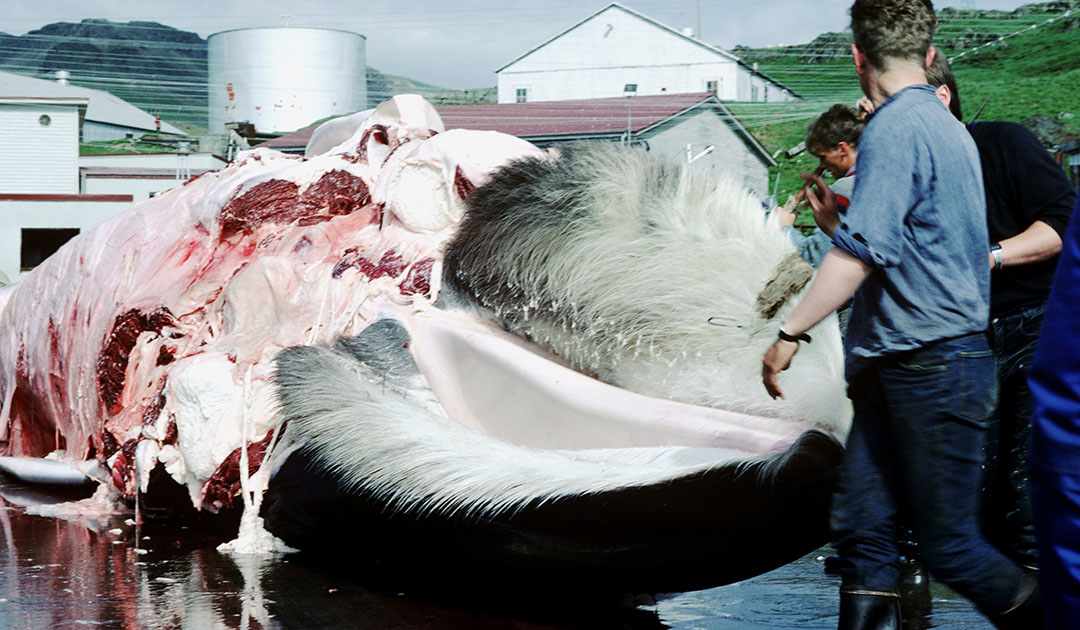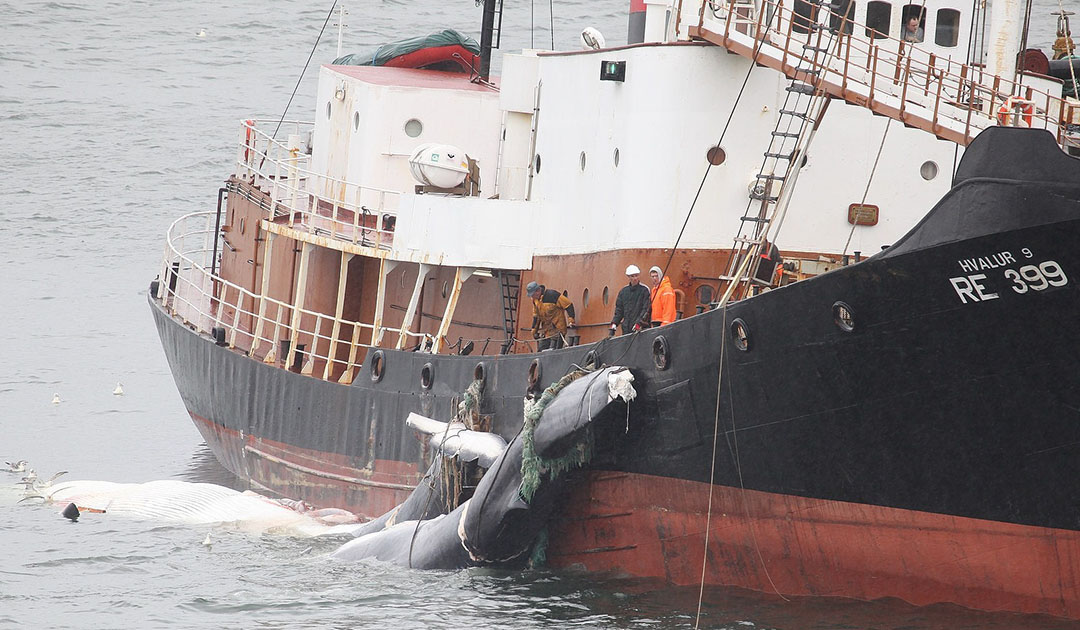
Despite strong opposition from the population and the international community, Icelandic company Hvalur hf. wants to resume whaling. Up to 209 fin whales may be killed per year. Photo: Jean Bazard via Wikimedia Commons (CC BY-SA 3.0)
There is one company in Iceland that still relies on whaling, even though its whaling ships have not been in operation since 2018. Although opposition to whaling is strong both in the international community and in Iceland, the company Hvalur hf. decided to probably start catching whales again this summer after a three-year break, according to Icelandic news outlet Morgunblaðið.
Whaling, which is still practiced by several countries, is an emotionally charged topic. The large marine mammals have been massively hunted for centuries, pushing many species to the brink of extinction. Populations have been growing again, some very slowly, since the end of industrial whaling, partly because new threats such as underwater noise and pollution are working against their recovery. The intelligent and sentient giants of the oceans have captured the hearts of many in recent decades, and furthermore, scientific studies have shown the important role marine mammals play in the ecosystem. Nevertheless, this does not protect them from still being hunted by some countries.
After a 20-year ban on whaling, Icelandic company Hvalur hf. resumed hunting whales in 2006. Since then, Hvalur hf. has sometimes gone out with his ships to catch whales and sometimes not. The company sells the meat exclusively to Japan. However, the bureaucracy involved in selling in Japan is said to be so great that Kristján Loftsson, the managing director of Hvalur hf., considered giving up whaling altogether in 2016. Now he told the Icelandic news platform Stundin that he will stop whaling only if Japan does not change its regulations.

Fin whale populations have recovered somewhat, but the fast marine mammals are still considered an endangered species. Photo: Julia Hager
Whaling is obviously not profitable for Hvalur hf. The company’s financial statements show that costs are higher than profits. Iceland’s prime minister, Katrín Jakobsdóttir, also expressed her concerns about whaling in an interview with Stundin: “I have grave doubts that whaling off the Icelandic coast can be considered sustainable from an environmental, social and economic perspective. I also doubt that the hunting methods meet the requirements we have for animal welfare.” Despite opposition and losing business, Loftsson, who is nearly 80, intends to stick with whaling.
After a dispute with the Icelandic Food and Veterinary Authority, due to which Hvalur hf. had to suspend whaling in 2018, the company now wants to hunt whales again this summer. Hvalur hf. has received permission to go whaling this year and next. According to Loftsson, the market outlook is now better again.
As reported by Morgunblaðið, the Marine and Freshwater Institute’s advice is for a catch of up to 161 fin whales annually in the East Greenland/West Iceland fishing area and 48 fin whales in the East Iceland/Faroe Islands fishing area from 2018 to 2025, for a total of 209 fin whales. Morgunblaðið further reports that 20% of the previous year’s unused catch quota can be carried over to the current year. Since there was no whaling last year, 42 fin whales can be added to this year’s quota.

Loftsson explains that his company will likely hunt whales from June through September. For that, he will probably hire 150 people to work on the whaling ships, at the whaling station and at the processing plant.
The current whaling license expires after the summer of 2023 and the fisheries minister, Svandís Svavarsdóttir, will then decide whether to issue whaling licenses from 2024. Just last month, she said she expected commercial whaling in Iceland to cease altogether by 2024 because demand for whaling products is low and the industry contributes almost nothing to the economy. In contrast, whale watching is booming, with 364,000 people coming to watch whales in 2019 alone.
A 2015 fin whale population count revealed nearly 41,000 fin whales in the Iceland and Faroe Islands fishing areas, 33,500 of which were in the East Greenland/Iceland whaling area.
Julia Hager, PolarJournal






A huge mistake and terrible idea. Whale watching is the way to go, not whale killing. What a nightmare.